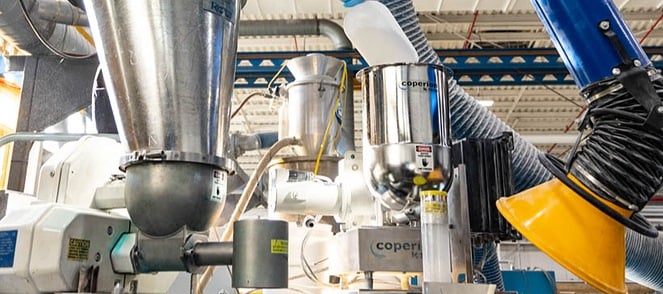
In the current competitive industrial environment, businesses are always looking for methods to boost productivity, cut expenses, and stimulate innovation. Using the experience of contract polymer manufacturing is one successful tactic. Businesses can benefit from specialised manufacturing capabilities while concentrating on their core competencies by outsourcing the production of polymers. The importance of contract polymer production and its effects on several sectors are examined in this article.
What is Contract Polymer Manufacturing?
Contract polymer manufacturing involves outsourcing the production of polymer materials to specialized companies. These manufacturers possess advanced equipment, technical expertise, and a deep understanding of polymer science, enabling them to produce high-quality polymers that meet specific industry requirements. This collaborative approach allows businesses to access cutting-edge technology and expertise without significant capital investment.
Advantages of Contract Polymer Manufacturing
- Cost Efficiency: Contract polymer manufacturing eliminates the need for companies to invest in expensive machinery, infrastructure, and workforce training. This cost-effective solution allows businesses to allocate resources to other critical areas such as research and development, marketing, and expansion.
- Access to Expertise: Specialized polymer manufacturers have extensive experience and technical knowledge in polymer science. This expertise ensures that the produced polymers meet stringent quality standards and adhere to industry regulations. By partnering with experienced manufacturers, companies can avoid the trial-and-error process of in-house production.
- Flexibility and Scalability: Contract polymer manufacturing offers flexibility in production volumes. Whether a company needs a small batch for testing or large-scale production, manufacturers can adjust to meet demand. This scalability is particularly advantageous for startups and companies with fluctuating production needs.
- Innovation and Customization: Contract manufacturers are often at the forefront of technological advancements in polymer science. They can provide customized solutions tailored to specific applications, enabling businesses to develop innovative products that stand out in the market. From unique formulations to specialized processing techniques, contract manufacturers can help turn visionary ideas into reality.
Applications of Contract Polymer Manufacturing
Contract polymer manufacturing plays a crucial role in various industries, contributing to the development of diverse products and solutions. Some key applications include:
- Automotive Industry: Polymers are essential in automotive manufacturing for producing lightweight, durable components. Contract polymer manufacturers provide materials for interior parts, exterior panels, and under-the-hood applications, enhancing vehicle performance and fuel efficiency.
- Medical and Healthcare: In the medical field, precision and reliability are paramount. Contract polymer manufacturing supplies medical-grade polymers for devices, implants, and disposables, ensuring they meet stringent safety and regulatory standards.
- Electronics and Electrical: Polymers are integral to the electronics industry, used in everything from casings to insulation materials. Contract manufacturers produce high-performance polymers that offer thermal stability, electrical insulation, and resistance to environmental factors.
- Consumer Goods: From packaging to household items, polymers are ubiquitous in consumer goods. Contract polymer manufacturers deliver versatile materials that enhance product durability, aesthetics, and functionality.
- Aerospace and Defense: The aerospace and defense sectors demand materials that withstand extreme conditions. Contract polymer manufacturers provide high-strength, lightweight polymers for components used in aircraft, satellites, and military equipment.
Choosing the Right Contract Polymer Manufacturer
Selecting a reliable contract polymer manufacturer is crucial for ensuring product quality and success. Consider the following factors when choosing a partner:
- Reputation and Experience: Look for manufacturers with a proven track record and extensive experience in polymer production. References and case studies can provide insights into their capabilities and reliability.
- Technical Expertise: Evaluate the manufacturer’s technical expertise, including their ability to handle specific polymer types and applications. Ensure they stay updated with the latest industry trends and advancements.
- Quality Control: Quality control is vital in polymer manufacturing. Choose a partner with robust quality assurance processes, certifications, and compliance with industry standards.
- Customer Support: Effective communication and support are essential for a successful partnership. Select a manufacturer that offers excellent customer service and is responsive to your needs.
Conclusion
Contract polymer manufacturing is a strategic solution for businesses aiming to enhance efficiency, reduce costs, and drive innovation. By partnering with specialized manufacturers, companies can access expertise, technology, and customized solutions that elevate their products and competitive edge. As industries continue to evolve, contract polymer manufacturing will remain a cornerstone of modern production, fostering growth and advancement across various sectors.







